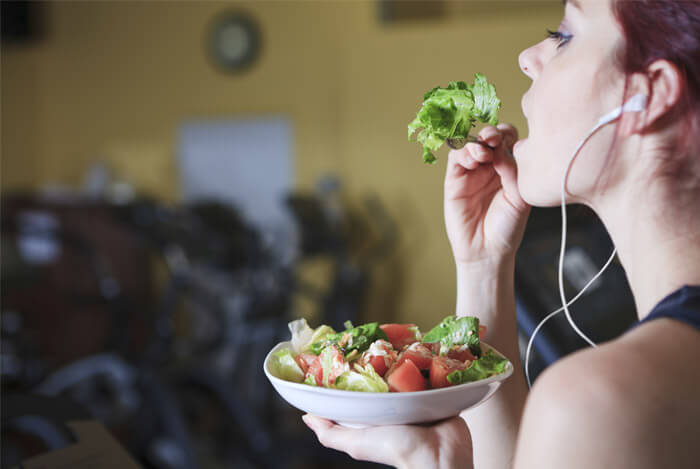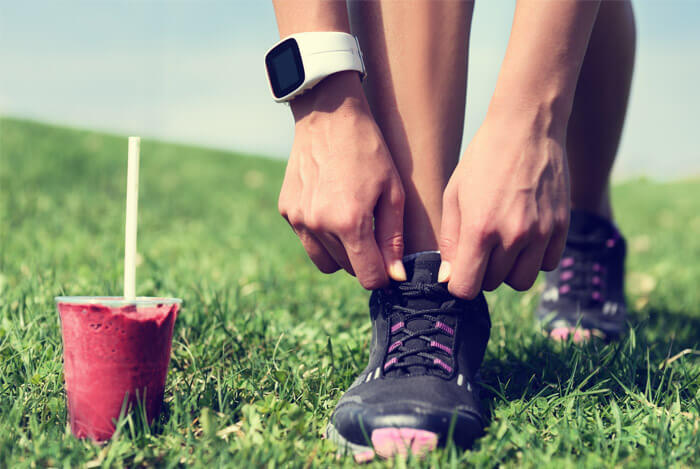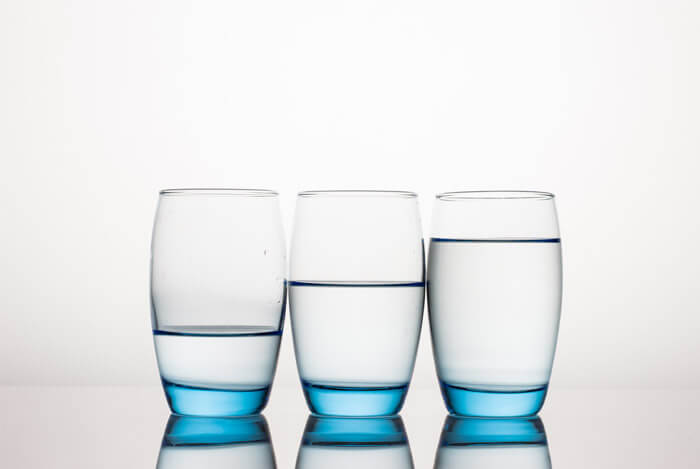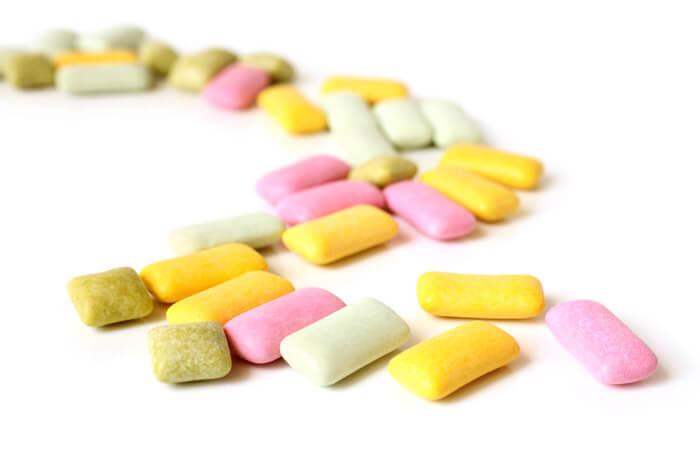I love tomatoes.
They’re great any way you prepare them, stewed, roasted, fresh cut with a slice of mozzarella cheese. I’m a huge fan. But every time I eat tomatoes I get pretty nasty acid reflux, and it stays with me for a good hour.
For those that suffer from heartburn or related indigestion, it’s generally known that high acid foods and spicy foods can trigger acid reflux. This includes a whole lot of tasty foods like garlic, sauces of all sorts, citrus, salt and vinegar chips, and to my great dismay, tomatoes.
How many people suffer from this? Am I alone?
Certainly not.
So what can we do to actually help reduce acid reflux? What do we avoid? And what should we do to make sure that we have less symptoms?
Well you’re in luck, here’s a list of things you can do.
- 1. Eating Speed
- 2. High Fat, High Sugar Foods
- 3. Exercise
- 4. Water
- 5. Chewing Gum
- 6. Stress
- Study Yourself
Table of Contents
+1. Eating Speed

Sometimes, when I’m running around between meetings and trying to squeeze a meal in, I eat pretty fast. Alright, I wolf my food down and barely chew it, because I just have no time.
I’m sure you’ve been there, we all have. If you do this too much, you then get into the habit of eating fast, and stumble into that vicious cycle of eating too fast, too much, and always on the run.
But, eating too fast can make it harder for your body to realize that it’s fed and for satiety hormones to rise, signalling that you’re full.
As a result, you may overfill your stomach, and fast. Not only can this induce heartburn, but you’re overeating as well.
So slow down and take as much time as you can, and like your mommy and daddy told you, chew your food.
2. High Fat, High Sugar Foods

Foods that are extremely high in calories, fat, and sugar tend to be much easier to overeat than other foods.
Any high fat food also tends to sit in the stomach longer, increasing the opportunity for gastric upset, especially if you eat it before working out.
3. Exercise

I realize there is exercise induced heartburn, where if you eat and then run around, your stomach hurts. I’m pretty sure we figured that out as children.
On the other hand if you wait for your body to digest properly, and then exercise, there’s no problem. But how can exercise help heartburn?
It’s more a matter of body mass than anything else. According to the Journal of Gastroenterology and Hepatology, a higher BMI has a more pronounced effect on regurgitation and heartburn.
Dr. Nocon & colleagues studied 6,215 patients using endoscopy and examined the association between BMI and reflux symptoms. In patients with reflux, there was a relationship between BMI and heartburn, but the strongest association was between obesity and symptoms, particularly in women.
Increased body weight also produces more pressure on the internal organs, including the stomach. So go ahead and hit that treadmill, it’s important for helping us control our weight, but not right after eating!
It’s always been hard for me to eat and then work out, but like I mentioned before, it’s so hard to fit a workout in while in a rush. If I haven’t eaten for a while and need the energy for a workout, I usually drink a protein shake, just enough to get through the workout, but not so much that I feel disgusting.
But if I have eaten recently and I’m just hungry, because I get hungry a lot, I chug some water to settle my stomach. That said, I won’t be doing any intense jumping up and down or running afterwards. If it turns out that I have just consumed something, I select my exercise program so that I will minimize the bouncing.
Try it out!
4. Water

Do you know someone that just doesn’t drink enough water?
It’s a small wonder why many people can’t stay adequately hydrated. In this day and age we’re all running around drinking coffee, drinking soda, and finishing the night off with a couple of libations.
But what about H2O, the nectar of life?
The initial stages of dehydration can affect the esophagus, which may exacerbate heart burn. Drinking water will not only mitigate this effect, but also neutralize and rinse away stomach acid that has moved up into the esophagus.
It’s important to note that if you’ve stuffed yourself, adding water to the volume in your stomach may further expand your stomach, and this will make heartburn symptoms worse. You’ve got to strike a balance between staying hydrated and consuming too much overall.
5. Chewing Gum
 Chewing gum! Who would have thought?
Chewing gum! Who would have thought?
I never figured chewing gum could help heartburn.
According to the Journal of Dental Research, Dr. R Moazzez studied the effect of chewing sugar-free gum on reflux. It was assumed that chewing gum increases the frequency of swallowing, and that this would help clear the contents of the esophagus when compared to not chewing gum.
Thirty one subjects with reflux symptoms were given meals that would trigger their reflux and were randomly selected to chew gum for a half an hour after eating. The data suggests that chewing gum can indeed reduce after meal reflux.
6. Stress

Last but not least, this is a big one…stress!
Stress is a huge factor when it comes to overall human health. And that’s because stress not only comes with an increase in cortisol levels, and increase in inflammation in the body. But stress also has so many fallout results like poor eating habits, lack of sleep, and the consumption of alcohol.
In the Journal of Psychosomatic Medicine, Dr. Naliboff & colleagues presented the effect of life stress on heartburn.
This group of researchers studied 60 people with heartburn and evaluated their lives in terms of stress. They studied whether these people had stressful events in the past 6 months, and continued to monitor their stresses over the next 4 months. They found that severe life stress predicted worse heartburn, and that anxiety showed the strongest relationship to heartburn.
I shouldn’t have to point out because it’s a no brainer, but having a balanced life will improve your stress levels. This includes improving your diet, exercising, getting adequate sleep, and learning how to relax in non-stress induced ways like yoga or meditation.
Without a doubt it’s tough in this day and age when everything is go-go-go, but for the sake of you, try to keep stress levels down.
Study Yourself

In the end the best thing to recommend is to study yourself because the person who knows you best, is you.
If you have heartburn or reflux, you have a general idea of what foods and activities trigger your heartburn, and when.
Some of the remedies suggested today are only temporary fixes to a broader problem. Improving your health and well-being doesn’t happen overnight but everything we do is a step in the right direction.
One way to nip heartburn in the bud is to start off with a generally heartburn friendly diet by removing acidic triggers, spicy foods, caffeine, and alcohol.
Not forever, no, but just to start.
As your heartburn begins to improve, start adding foods to the mix, one item at a time, and monitor whether it is a real trigger for you or not.
Some of the common trigger foods may result in worse symptoms than others. After a few weeks, you’ll know what to avoid, and what to eat only once in a while.
Have you found something helpful for your heartburn and indigestion?
What’s your take on acid reflux? Have anything else you’d like to share? Let me know in the comments below!










